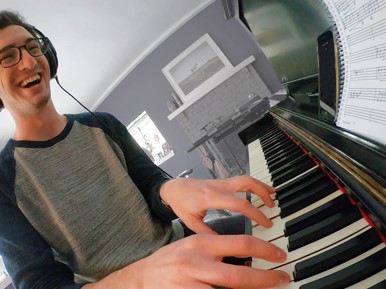

Today we’d like to introduce you to Jordan Plotner.
Jordan, let’s start with your story. We’d love to hear how you got started and how the journey has been so far.
I was an emotional child – deeply sensitive, prone to bouts of existential angst – and I had dreams of being an inventor. We had a little workshop where my brother, Sam, and I would work on all sorts of building projects with Dad: a go-cart, guitars (though not quite playable), a toboggan, and other half-useful whittled objects. Mom was kind enough to let Sam and me experiment with ‘mural painting’ on the basement walls when we weren’t occupied with our Lego.
I played with little electrical engineering kits and had a chemistry-themed ‘Mad Science’ birthday party in which Dr. Bob came and led us through thrilling experiments. To me, there was nothing more exciting than making something that wasn’t there before. I am lucky enough to be a third-generation artist – Mom is an architectural photographer and Dips, my grandpa, is a Pulitzer Prize-winning painter and children’s book author – so it seemed entirely reasonable that I could be an inventor and ‘make stuff’ for the rest of my life.
I lived in New York until I was seven, then moved to London, England where I lived until I was eighteen. I went to the American School in London, and the Royal Academy of Music Pre-College program, and spent some time working as an avocado farmer in Israel before starting college. I graduated from Yale in 2017 (majored in American Studies), moved to LA, and have been here since.
Given how frequently I’m asked about what I do for a living, I really ought to have a nice concise answer, but, I don’t… I write music for movies and tv shows, for the concert stage and for commercials. I write musicals and pop songs, poetry, short stories, and screenplays. I build instruments (https://3dprint.com/32674/3d-print-beer-bottle-keyboard/), bookshelves, and medical devices, and one day I hope to open an ice cream shop.
Has it been a smooth road?
I’d venture to guess that the trope of the struggling artist has been around for as long as humans have been creating art. For a good reason – every day is an obstacle! I’d also guess that for most artists, becoming an artist was never a choice, as much as it was a compulsion – something they needed in order for life to be fulfilling. So the creative process bears the daunting responsibility of feeding your body (whether peanut butter tubs, Trader Joe’s frozen Tikka or a Nobu diet) and your mind/soul, as obstacles arise and difficult decisions need to be made.
In addition to these (already overwhelming!) artist struggles, I have a rare genetic disorder called Ehlers-Danlos Syndrome (EDS). It affects all of the connective tissue in my body and in turn causes all sorts of exciting disruptions to my brain, heart, lungs, and other vital organs. Though some symptoms have been present for as long as I can remember, it really started messing with my life during my sophomore year of college – when I had a spinal fluid leak – and was only diagnosed a few months ago.
So in addition to the severe neurological and cognitive issues that EDS has brought me over the years (take my word for it that Junior year at Yale is made much tougher when you’re battling symptoms of dementia…) it has, like many other chronic illnesses, wreaked its havoc financially (medical bills are a doozy), socially, and on those closest to me. It can be difficult finding time and energy to see friends when each day is, in some ways, a battle to preserve my own wellbeing, sanity, and livelihood.
There is a wonderful passage in Rainer Maria Rilke’s “Letters to a Young Poet”:
“Allow your judgments their own silent undisturbed development which like all progress, must come from deep within and cannot be forced or hastened. Everything is gestation and then birthing.
To let each impression and each embryo of a feeling come to completion entirely in itself, in the dark, in the unsayable, the unconscious, beyond the reach of one’s own understanding, and with deep humility and patience, to wait for the hour when a new clarity is born. This alone is what it means to live as an artist: in understanding as in creating.”
My own health, like my work as an artist, and a self-employed freelancer, poses many questions to which I have no answers. I strive to be patient and humble in the face of the unknown, so that one day, the obstacle might present itself in the form of an idea.
We’d love to hear more about what you do.
I’m working on several projects at the moment, but thought I’d highlight three in particular: 1) I’m writing the book, music, and lyrics for a new stage musical inspired by a collection of short stories that Dips (grandpa) wrote about his childhood, growing up and learning to paint in Brooklyn (next to Coney Island) during the Great Depression.
2) I’m putting together an exciting new pop music/art/literary collective that will have its first release in the coming weeks (https://open.spotify.com/track/1JdrtCcYKYvpfi0OAKx3gP?si=KZpuPvUET0uHAexFw6S4nQ)
3) I’m creating a documentary/music project related to Ehlers-Danlos Syndrome, and those who suffer from chronic illness.
What’s your favorite memory from childhood?
I played the entirety of my little league baseball career at Wormwood Scrubs – a large park in West London, in the shadows of Her Majesty’s Prison at Wormwood Scrubs, historically known for its roster of IRA prisoners. I never went to the Scrubs during the week, but I imagine it was serene. Early Saturday mornings, rusting backstops were pitched, and the hot dog and hot chocolate trucks arrived. Then came the children – hundreds, all shapes and sizes, like an orchestral stampede with mitts, bats, and balls.
Parents huddled with blankets, coffee, diet coke, and chit chat, and pitched their chairs in the small patch of London forever doomed to be cold, grey, and rainy. I derived great meditative pleasure from the process of putting on my baseball uniform. The socks stretched high up to my knees. The pants pulled up at the bottom (like Yankees’ Alfonso Soriano) and folded back over slightly to hide the elastic wrinkle. The jersey tucked in neatly to my pants and pulled out a little so as not to fully reveal my skinny frame.
When I was still too young to wear the pants that came with belt loops, Mom sewed on belt loops herself so that I could wear a real baseball belt like my big brother. Dad was the greatest coach a child could ask for. On his team, it was important to have fun in the traditional sense, but the real joy to be had was found in the game itself: the mechanics of throwing and swinging, the logic puzzles of thinking through plays, the adrenaline surges of surprise.
There was always at least one kid who started off the season without ever having thrown a baseball or swung a bat (we were in London after all!). Dad would devote extra time to these players over the season, working on their basic mechanics, and helping them boost their confidence. And always there came a time, usually towards the end of the season, when these baseball neophytes would surprise us all (including themselves) with an incredible hit.
I would look at the sidelines: at Sam, beginning to warm up for his game but staying and coaching me to the very end of my own; at Dad, as he was lavished with praise by the shocked, and suddenly prideful parents of this new baseball star; at Mom, huddled under blankets with a thermos of tea cheering for the love of baseball and for family; and I knew that I had everything I could ever want.
Contact Info:
- Website: https://www.jordanplotner.com
- Email: [email protected]
- Other: https://silvermusic.threadless.com
- Spotify: https://open.spotify.com/track/1JdrtCcYKYvpfi0OAKx3gP?si=KZpuPvUET0uHAexFw6S4nQ



 Image Credit:
Image Credit:
John Chirikjian, Yale CEID
Getting in touch: VoyageLA is built on recommendations from the community; it’s how we uncover hidden gems, so if you know someone who deserves recognition please let us know here.












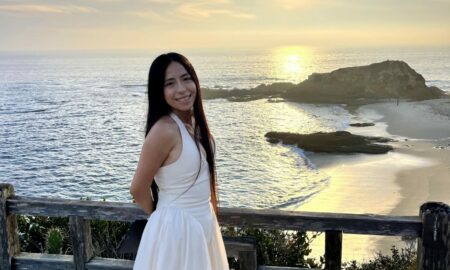
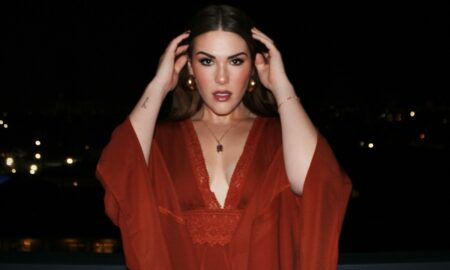
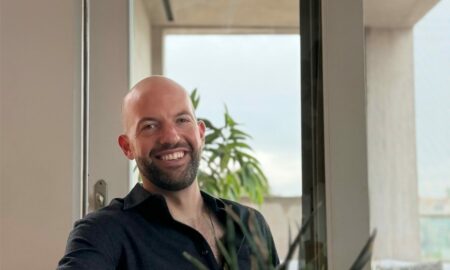
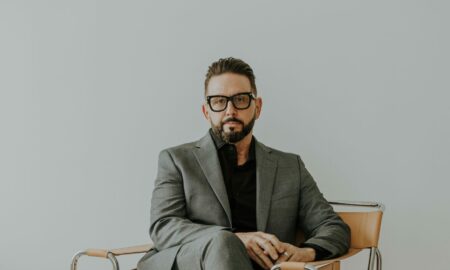
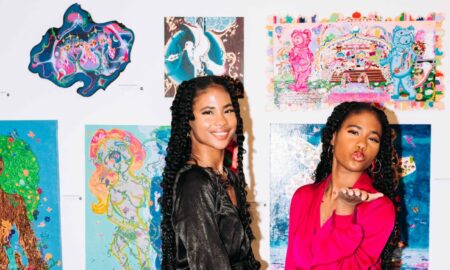


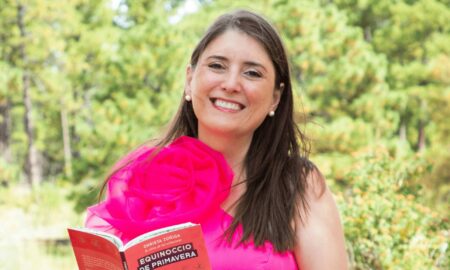
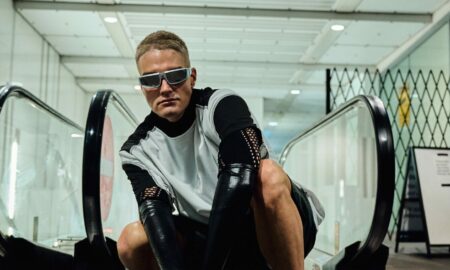
Alexis Stevens
April 3, 2019 at 08:10
Thanks for the clarity. It’s so satisfying to hear it. I have lived a life that is full of every imaginable form of making something from nothing. Writing – songs, poetry, plays, – playing several instruments, painting, learning languages, teaching, playing music in many forms, cooking, needle and thread work, gardening, and the list grows and grows always. This was the way of my childhood, my family., especially my father.
When I was a kid, I took for granted that this is how all families are. As an adult, though, I find that I feel a lot like a fish out of water. It is very hard for me to get others to understand that I’m not weird and I’m not lazy, that’s for sure, I, too, have a chronic illness that drains me sometimes, and bends life into a weird shape, and that also requires me putting the pieces of my life into an order that may be different from the order of other peoples lives, and therefore in recognizable to them. Artists are generally anything but lazy – quite the opposite, as our minds and awareness seem to get little rest from the compulsion to uncover the natural order of things. It’s very hard to keep still for long when the universe and life keep addressing you and you feel an answer has to be voiced by you because the question is addressed to you and you alone. As artists, whether by temperament or professionally, we aren’t “trying to avoid working for a living” as I’ve heard it said, It IS our working for a living. We just live in and from a different place. We’re working out our existence in relation to life and our universe. Often, we end up helping others feel their way, too. So we are doing something worthwhile, money, or the absence of it, notwithstanding.
I met your Dad this summer. You come ftom a good place. My guess is that you’re going to be fine. I hope you keep following your nose. Isn’t Rilke a great help? I rest my case!